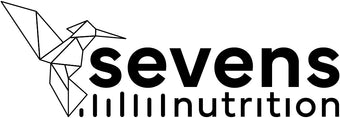Our bodies need nutrients and energy to function properly. If any of these substances are lacking, sooner or later they will experience failure. Nutritional deficiencies in vitamins and minerals are increasingly common due to poor soil quality and the decrease in nutrients in the foods we consume. Supplementing these nutritional deficiencies is an excellent way to prevent long-term chronic diseases and improve our quality of life. However, to achieve this, we first need to know which nutrients we are lacking.
It is important that you know the The most common signs of nutritional deficiency , as our body uses these signs to tell us what nutrients we need. Although a blood test would be ideal to obtain accurate information, not everyone has access to this option. Therefore, we'll focus on the signs we can observe directly, as we can all verify them.
As for the Vitamins , it's important to note, are divided into two types: fat-soluble and water-soluble. This is relevant because fat-soluble vitamins tend to accumulate in our bodies, and therefore, there's a greater risk of toxicity when we consume excess of these vitamins. They remain in our bodies for longer. On the other hand, water-soluble vitamins are eliminated quickly by our bodies, which implies a lower risk of excess. However, if we don't consume foods rich in these vitamins, we're likely to experience deficiencies quickly.
– Vitamin A. Vitamin A is fat-soluble and crucial for maintaining healthy skin, as well as affecting our vision, immune system, and reproductive capacity. It's important to note that sources of preformed vitamin A are more beneficial to our bodies than those containing substances called carotenoids, found in red, yellow, or orange fruits and vegetables. The latter must be converted into vitamin A in our bodies to be used properly.
Vitamin A deficiency can lead to dry skin prone to eczema, as well as impaired wound healing due to decreased collagen production. Regarding the eyes, the most common problems are related to low vitamin A levels, such as night blindness in extreme cases. However, the most common symptom is dry eyes and a decrease in the quality and acuity of vision in low-light conditions. People with low vitamin A levels are also more prone to acne, and vitamin A creams have been shown to reduce acne lesions by 50%.
– Vitamin B1. This vitamin is essential for circulation, energy production, and proper nerve function. Symptoms of vitamin B1 deficiency include tingling or burning in the arms and legs, loss of appetite, shortness of breath, and changes in heart rate.
– Vitamin B2 . Also known as Riboflavin , it's important to note that it cannot be stored in the body. This means that if you don't consume sources of this vitamin regularly, you could have a B2 deficiency. The advantage is that the symptoms of this deficiency are easy to identify, and the functions the vitamin performs are key to determining the consequences of having an insufficient amount. Vitamin B2 is essential for maintaining healthy skin and mucous membranes. Therefore, in cases of deficiency, you could experience dry lips, dry ankles, a swollen tongue, and, in more severe cases, anal fissures due to damage to the anal mucosa. Remember that vitamins B1, B2, and B3 are essential for energy production, as they are responsible for extracting nutrients from food and converting them into energy. Therefore, low levels of B2 can make it difficult to extract energy from food and lead to a feeling of mental sluggishness due to a lack of sufficient ATP, the energy molecule. Additionally, vitamin B2 is necessary for the formation of new red blood cells and maintaining eye health. In fact, if you have low levels of B2, you may be more prone to developing cataracts.
– Vitamin B3 . Also known as Niacin is the most important vitamin for our energy production. It's needed in our mitochondria, our body's energy factories, to produce the ATP molecule we use as a source of energy. By utilizing various energy sources and speeding up our metabolism, vitamin B3 helps us properly manage fats, converting them into energy and thus speeding up our metabolism. Therefore, low levels of B3 can lead to a buildup of cholesterol and triglycerides, as we can't efficiently use those fats as an energy source. In patients with low levels of B3, supplementation with this vitamin at adequate doses has been shown to reduce cholesterol-associated cardiovascular risks, especially by lowering LDL cholesterol and triglyceride levels, and increasing HDL cholesterol, known as "good" cholesterol. Due to its relationship with energy, low levels of B3 are also increasingly associated with mental symptoms and mood disorders, such as depression and even bipolar disorder. Furthermore, one of the most surprising symptoms of B3 is its vasodilator function. Therefore, low levels of B3 can lead to erectile dysfunction, while doses of 1,500 milligrams of B3 have been shown to improve erections. It's also important to mention that B3 is used topically to reduce acne and decrease skin inflammation, even in more severe dermatological cases than acne.
– Vitamin B5. Also known as Pantothenic acid is found in all types of foods, so vitamin B5 deficiency is extremely rare. However, it's important to have adequate levels of B5, as it plays a key role in cholesterol synthesis. Our body produces its own cholesterol, which promotes a healthy cholesterol profile and reduces cardiovascular risk. Therefore, having good levels of B5 protects us at the cardiovascular level. Furthermore, like the previous vitamins, B vitamins, including B5, are necessary for energy production. They transform the carbohydrates we consume into glucose and simple sugars for use as an energy source. If we are deficient in these vitamins, we may experience fatigue and lack of energy. Taking a B vitamin complex may be one of the first steps you can take to improve your energy levels. Pantothenic acid (B5) is necessary to produce a substance in the brain called choline, which acts as a neurotransmitter. Choline helps us focus and improve our memory. Therefore, low levels of B5 can impair memory and focus during study or work. B5 deficiency is also associated with burning feet syndrome, which causes a burning sensation in the soles of the feet due to nerve damage in that area. Additionally, B5 is necessary to regulate cortisol, our stress hormone. If you struggle with stress and your stress response is unbalanced, you may be deficient in vitamin B5. In cases of surgery, vitamin B5 speeds wound healing. On the other hand, B5 deficiency can accelerate the appearance of signs of aging, such as wrinkles or skin blemishes, as it affects the rate of replication and formation of new cells.
– Vitamin B6. Vitamin B6 is necessary for many nervous system functions, like most B vitamins. However, a B6 deficiency can cause a reddish coloration on the face that is often confused with rosacea, especially around the nose and mouth. It's important to note that deficiencies in these vitamins are rare, and vitamin B6 in particular is highly dependent on our bacterial flora. Depending on the balance of our bacterial flora, we can have an excess or deficiency of this vitamin, although it generally does not have serious health consequences.
– Vitamin B9 . Also known as folic acid , it is one of the most well-known nutrients. Many people take folic acid supplements during pregnancy, but in adults, B9 helps with red blood cell production and DNA repair. This means that low levels of vitamin B9 can lead to anemia and DNA damage, accelerating the aging process. Signs of folic acid deficiency can include persistent fatigue, premature graying of hair, and pale skin due to anemia. It's important to note that low levels of folic acid during pregnancy can cause neurological problems in the baby. Therefore, it's crucial to avoid folic acid deficiencies, especially if you're planning to conceive. Remember that it's advisable to consult a healthcare professional to determine the appropriate folic acid dosage for your particular case.
– Vitamin B12. Also known as Cobalamin is one of the most common deficiencies. This vitamin helps regulate the nervous system and plays a central role in the formation of red blood cells that carry oxygen in the blood. Low levels of B12 over time can lead to a peculiar anemia called megaloblastic anemia, where red blood cells enlarge to compensate for this deficiency. Interestingly, B12 is so important for our brains that low levels can significantly increase the risk of dementia or depression in the long term. Because of this, B12 deficiency can manifest with symptoms such as memory loss, fatigue due to anemia, loss of appetite that can lead to weight loss, and tingling in the hands and feet. If you follow a vegetarian or vegan diet, you're quite likely deficient in B12, as this vitamin is primarily found in animal-based foods. It's important to make sure you get enough B12 through fortified foods or supplements if you follow a non-animal-based diet. Remember that it is advisable to consult with a healthcare professional to determine the appropriate dose of B12 for your particular case.
–Vitamin C. It is necessary for collagen formation, proper clotting, and a strong immune system. It also acts as our primary antioxidant. Symptoms related to low vitamin C levels are associated with difficulty healing wounds properly and keeping your joints healthy due to collagen formation. Additionally, like vitamins B5 and B9, a lack of vitamin C can lead to premature aging, as collagen is not formed properly and cells oxidize more quickly. Vitamin C has many surprising functions. It helps produce a neurotransmitter called norepinephrine, which is crucial for keeping us alert and awake. It also aids in the formation of carnitine, which allows us to burn fat and use it as energy. Vitamin C also supports our white blood cells in the defense system against infections, so low levels can result in frequent infections. Vitamin C plays a crucial role in blood clotting. Historically, sailors suffering from scurvy, a disease caused by a lack of vitamin C, exhibited symptoms such as bleeding gums. Other symptoms include red spots on the skin and an increased tendency to bruise easily.
– Vitamin D. It plays an essential role in our immune system. A lack of vitamin D can manifest itself with frequent infections. Furthermore, vitamin D supplementation has been observed to reduce mortality by 7% from non-traumatic causes. A lesser-known symptom of vitamin D deficiency is hair loss, especially in women. It can also cause chronic muscle pain, and vitamin D supplementation has been shown to improve muscle pain and conditions such as fibromyalgia.
– Vitamin K. Vitamin K is less well-known and less measured, but it plays an important role in blood clotting. Signs of vitamin K deficiency include excessive bleeding and easy bruising.
We recommend that you eat foods that provide all these vitamins properly, but we are aware that today's pace of life and the poor quality of the food we sell make it difficult to maintain good levels of all these vitamins. At Sevens, we have designed a multivitamin that contains the appropriate levels of each vitamin to make it easier for you to ensure you don't have the deficiencies we've discussed in this article. In addition, this multivitamin is complemented with other micronutrients that facilitate the absorption of these vitamins and promote proper body function. Don't hesitate to use it daily. Sevens Multivitamin




